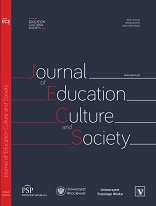INDIVIDUAL PSYCHOLOGICAL CHARACTERISTICS OF STUDENTS WITH DIFFERENT TYPES OF CIVIC IDENTITY
INDIVIDUAL PSYCHOLOGICAL CHARACTERISTICS OF STUDENTS WITH DIFFERENT TYPES OF CIVIC IDENTITY
Author(s): Sophia Grabovska, Inga PetrovskaSubject(s): Social Sciences, Psychology, Social psychology and group interaction, Personality Psychology
Published by: Fundacja Pro Scientia Publica
Keywords: civiс identity;civil society;state;students;individual model of the world
Summary/Abstract: The civic identity of an individual is seen as a dynamic system of citizen's perceptions of himself / herself and related emotions and value-semantic elements derived from the awareness of the fact that he / she is a citizen of a state and at the same time a member of the community of citizens. The results of the study support the notion that awareness of being a citizen of the state does not already mean having civic identity. Only 34% of interviewed students have a well-formed positive civic identity; 37% are showing some uncertainty, vagueness, ambiguity in their perception of themselves as citizens; 15% reject their Ukrainian civic identity, have a well-formed negative civic identity, and, more than other types, exhibit passive-indifferent civil position; 14% make a group of "potential emigrants" who are ready to change the Ukrainian civic identity for another. The differences in worldview and value-motivational sphere of students with the formed positive ("reached"), undefined ("indistinct" / "diffuse"), formed negative ("negative-passive") and "protest" ("potential immigrants") civic identity have been discovered.
Journal: The Journal of Education, Culture, and Society
- Issue Year: 8/2017
- Issue No: 1
- Page Range: 138-147
- Page Count: 10
- Language: English

